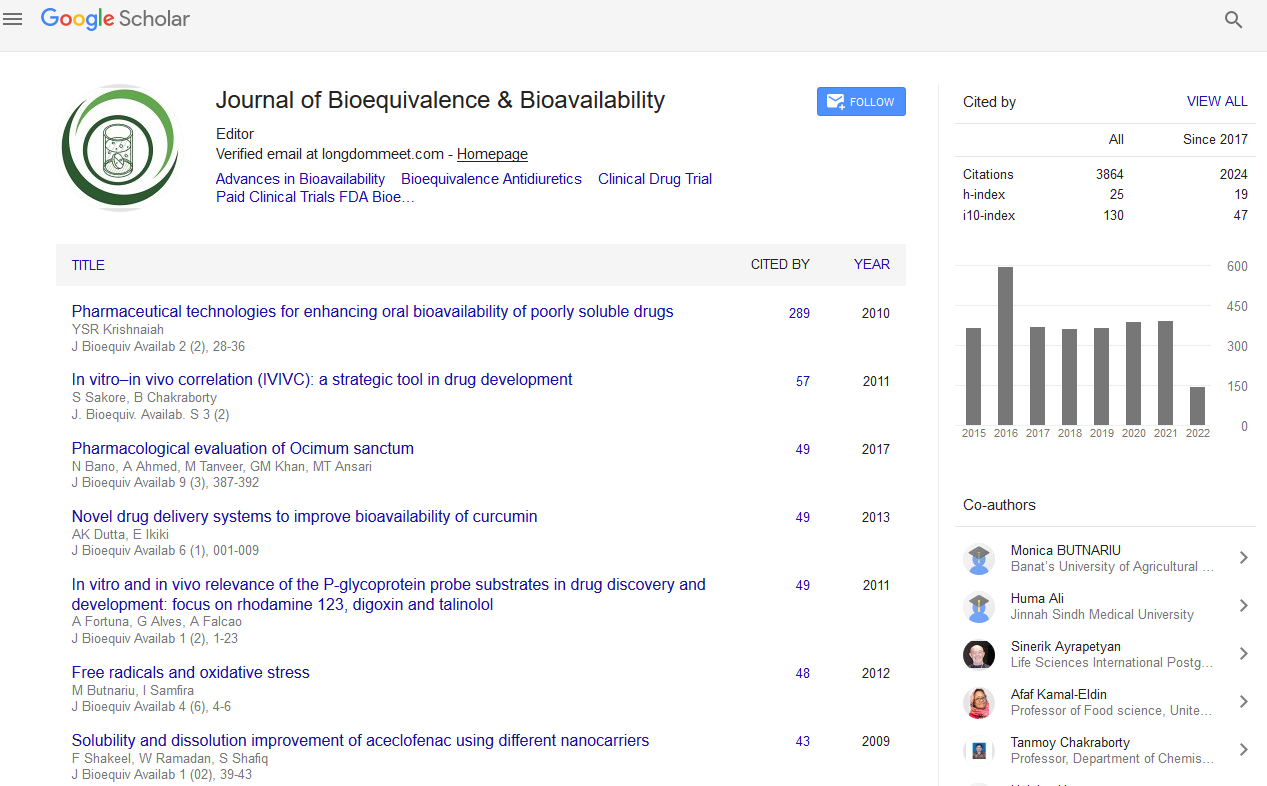PMC/PubMed Indexed Articles
Indexed In
- Academic Journals Database
- Open J Gate
- Genamics JournalSeek
- Academic Keys
- JournalTOCs
- China National Knowledge Infrastructure (CNKI)
- CiteFactor
- Scimago
- Ulrich's Periodicals Directory
- Electronic Journals Library
- RefSeek
- Hamdard University
- EBSCO A-Z
- OCLC- WorldCat
- SWB online catalog
- Virtual Library of Biology (vifabio)
- Publons
- MIAR
- University Grants Commission
- Geneva Foundation for Medical Education and Research
- Euro Pub
- Google Scholar
Useful Links
Share This Page
Journal Flyer

Open Access Journals
- Agri and Aquaculture
- Biochemistry
- Bioinformatics & Systems Biology
- Business & Management
- Chemistry
- Clinical Sciences
- Engineering
- Food & Nutrition
- General Science
- Genetics & Molecular Biology
- Immunology & Microbiology
- Medical Sciences
- Neuroscience & Psychology
- Nursing & Health Care
- Pharmaceutical Sciences
Enhanced Artemisinin yield by expression of rol genes in Artemisia annua
7th World Congress on Bioavailability & Bioequivalence: BA/BE Studies Summit
August 29-31, 2016 Atlanta, USA
Erum Dilshad
Quaid-i-Azam University, Pakistan
Posters & Accepted Abstracts: J Bioequiv Availab
Abstract:
Despite of many advances in the treatment of malaria, it is still the fifth most prevalent disease worldwide and is one of the major causes of death in the developing countries which accounted for 584,000 deaths in 2013 as estimated by World Health Organization. Artemisinin from Artemisia annua is still one of the most effective treatments for malaria. Increasing the artemisinin content of A. annua plants by genetic engineering would improve the availability of this much-needed drug. In this regard, a high artemisinin yielding hybrid of produced by the centre for novel agricultural products of the University of York, UK, was selected (artemisinin maximally 1.4%). As rol genes are potential candidates of biochemical engineering, genetic transformation of A. annua with Agrobacterium tumefaciens GV3101 harboring vectors with rol B and rol C genes was carried out with the objective of enhancement of artemisinin content. Transgenic lines produced were analyzed by the LC-MS for quantitative analysis of artemisinin and analogues. These high artemisinin yielding transgenics were also analyzed by real time quantitative PCR to find the molecular dynamics of artemisinin enhancement. Genes of artemisinin biosynthetic pathway were studied including amorphadiene synthase (ADS), cytochrome P450, (CYP71AV1) and aldehyde dehydrogenase 1 (ALDH1). Trichome-specific fatty acyl-CoA reductase 1(TAFR1) is an enzyme involved in both trichome development and sesquiterpenoid biosynthesis and both processes are important for artemisinin biosynthesis. Thus, real time qPCR analysis of the TAFR1 gene was carried out and trichome density was determined. Transgenics of rol B gene showed 2-9 fold increase in artemisinin, 4-12 fold increase in artesunate and 1.2-3 fold increase in dihydroartemisinin. Whereas in the case of rol C gene transformants, a 4 fold increase in artemisinin, 4-9 fold increase in artesunate and 1-2 fold increase in dihydroartemisinin concentration was observed. Transformants with the rol B gene had higher expression of these genes than rol C transformants. TAFR1 was also found to be more expressed in rol gene transgenics than wild type A. annua, which was also in accordance with the trichome density of the respective plant. Thus it was proved that rol B and rol C genes are effective in the enhancement of artemisinin content of A. annua, rol B gene being more active to play part in this enhancement than rol C gene.
Biography :
Erum Dilshad has submitted her PhD thesis in Biochemistry/Molecular biology at Quaid-i-Azam University, Pakistan. She has published 4 papers in reputed journals. She has 5 years’ experience as Lab Technologist and Researcher. She has been engaged in teaching Molecular Biology techniques to MSc students for two year at Department of Biochemistry Quaid-i-Azam University, Pakistan. She has worked at Shifa International Hospital Islamabad for 4 years (2010-2014) as Principal Technologist at immunohistochemistry section of laboratory. She is familiar with the diagnostic tests of immunology and molecular biology like FISH, ELISA, direct/indirect immunofluorescence and routine immunohistochemistry tests along with antinuclear antibody testing.
Email: erum.dilshad@gmail.com


